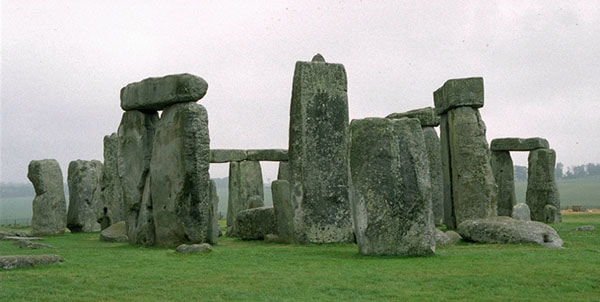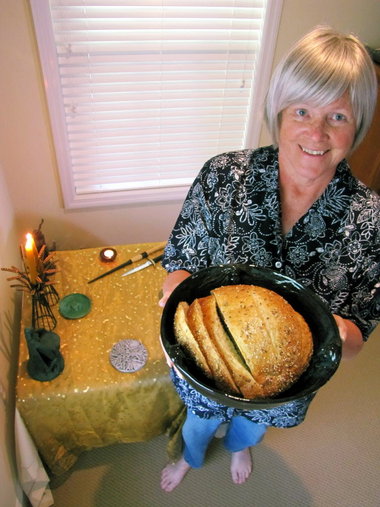Paganism
a resource page
Essays from Harvard Pluralism Site
|
|
|
Meet a Pagan: Carol Kirk
Carol is a retired nurse and Vietnam veteran who served as an Army Nurse from 1966-1986 including 18 months in a combat hospital in Vietnam. Carol has been a practicing Wiccan since 1980. ...One day a week, Carol works as a volunteer chaplain at her local hospital. Having developed an interest in furthering the public understanding of Wicca through interfaith work, she is a member of both One Huntsville and the Diversity Dinner program in her community. (In About Carol Kirk, Patheos 11/25/2018)
|
Interview with Carol Kirk in Alabama.Com
Her work in 1969-79 as an Army nurse in a combat-zone hospital in Vietnam had executed the comfortable suburban Christianity of her childhood. After Vietnam, she had decided that being an atheist was the only position that made sense in the face of senseless suffering. But then, on a late summer afternoon about 20 years ago, Kirk went for a walk on the rolling hills of the land that she and her husband, Blake Kirk, owned then near the Army base in Tennessee where they were stationed. The luminous light of evening surrounded her, and she felt something soften in her battle-weary heart. “If I ever believe in anything again,” Kirk thought, “it would be in the old gods of Earth and Sky.” “And then,” Kirk said this week, recalling that moment of accidental prayer. “I heard something like a cosmic chuckle: ‘It took you long enough.’” Wiccan high priestess Carol Kirk and her husband used to lead their coven in rituals in a sacred circle cast near an old oak tree in Tennessee. (The Huntsville Times/Michael Mercier) No orgies? But, 20 years ago in Clarksville, Tenn., news of the modern pagan movement was not well known. So Kirk finds it significant that the next day, a flyer landed in her mailbox with descriptions of two books on Wicca, the modern practice of witchcraft. Kirk read their descriptions with interest: An emphasis on the balance of male and female powers, a respect for the spark of divinity in every living creature, a return to celebrating the “quarters” and “cross-quarters” of the year, as the eight high holy times of the seasons and mid-seasons are called in Wicca. And the orgies? What about the orgies? Kirk laughs at the question. She said she’d had the same reservation when she first began exploring Wicca with coven leaders in Nashville. “Ah, the orgies,” her high priestess had said. “That’s only for those who have been initiated.” But even after Kirk and her husband had studied the spells and herbs and rituals that make up the work of witches standing in a sacred circle together – practices not all that far removed, in their mechanics, from the prayers, songs and rituals of her childhood Christianity – they found no information on orgies. One day, they confronted their priestess. “Oh, the orgies,” the priestess said, and smiled. “There aren’t any.” “I think Wiccans get a reputation for orgies because, unlike some faiths, we view human sexuality as a good thing,” Kirk said. “I’m not saying some people don’t use their religion as an excuse to do what they want, but being more open about sexuality is not the same as saying you’ll have sex with anybody. “For Wiccans, sex is about the sacred marriage, the joining of the male god with the goddess, so sex is a sacred act.” Some Wiccan covens will share a mug of beer, passing it with the blessing, "May you never thirst," as they celebrate the traditional time of the first grain harvest. Sacred circles The rituals of Wicca are meant to move human beings into a sacred circle. When the circle is cast, using incense and chants that invite the god and goddess and protect against unwelcome powers, Kirk said the sense of protection and holiness is palpable. She remembers evening rituals under an oak tree on their land in Tennessee when the nighttime fog would roll in around them, stopping at the perimeter of their circle as though in respect. “It’s nice when we practice out in nature,” Kirk said. “You can sense the connection with the traditions.” But modern Wicca, which only began to be defined in the 1930s, also moves those old rhythms of moon and sun, summer and winter, into a meaningful connection with modern life. That’s what Kirk emphasizes during rituals where she presides. Kirk, who also has worked as a hospital chaplain, is studying for a master’s in pastoral counseling at Cherry Hill Seminary in South Carolina, one of the world’s first pagan seminaries. Lamas, for example, is the beginning of the harvest season – a time to consider what we want to gather from our lives, what we want to preserve and protect, what we want to celebrate. It’s a time when coveners will stand in circle together, passing a loaf with the blessing, “May you never hunger,” and a mug of beer with the blessing, “May you never thirst.” “We’re not farmers,” Kirk said. “We have to look for way not only to connect with historical traditions, but also to make them relevant now.” |
On Being a Hospital Chaplain
by Carol Kirk Hospital chaplaincy is an often misunderstood vocation. Many unfamiliar with the work of the hospital chaplain equate it with ministry, but that is not what it is at all. Ministers seek to bring a specific message to those with whom they work. Hospital chaplains lay aside their personal beliefs at the door to the patient’s room and seek instead to immerse themselves in the spiritual worldview of the patient or the patient’s family. At Huntsville Hospital where I am working we have one permanent chaplain and about 20 volunteer chaplains to serve the needs of 881 patients, the families of those patients, and also the staff on the various units. This is a stressful environment in which to work. Sometimes we engage in happy events such as the baptism of a newborn. But often our work is with those who are critically ill or dying. This presents a challenge not only in meeting the needs of the patient and their family, but also in maintaining one’s own spiritual and emotional health. Our Pastoral Care Department consists of volunteers of many different faiths. We currently have a number of Christian chaplains of various denominations, a Rabbi, two Imams, a B’hai, a Buddhist and a Hindu priest, and myself as the lone Pagan on the staff. This variety of faiths leads to some interesting discussions of beliefs and practices that are helpful when one of us is faced with a patient from a different spiritual group. It has also permitted us to share our theological standpoints and come to a clearer understanding of where we find common ground one with the other. When I begin my shift at the hospital I spend the morning with a prayer to my Goddess to lead me to those who need my help, and to give me the words and the actions to meet those needs. I know that She will walk with me throughout the day, giving me the strength to do this challenging work. In addition, before I enter a patient’s room or walk to their bedside, I take a deep breath to center myself and prepare for the work I am going to do. From the moment I walk into a room my function become that of creating a sacred space within which the Divine can be at work. When one enters a room the thing that a patient or their family member needs most is simply to have their story heard, to share their fears, and to receive comforting words of faith. This is where the talent of listening is valuable. The patient will let you know what it is that they need from you if you take the time to listen instead of making assumptions about what to do. The challenge here is to be able to enter the patient’s spiritual belief system and offer support within that system even if it differs from your own…and most times it will. So anyone thinking of being a hospital chaplain would do well to study the beliefs about illness, death, and dying from many different religions. Sometimes no words are possible or the grief is too intense for words of any kind. Here is where the ability to act as a conduit through which the Divine can enter into a room becomes a source of strength and comfort for all there. This “ministry of presence”, a ministering without words or actions other than a comforting hand or a quiet presence can be just the support a family or a patient might need in a moment of crisis. Such moments require no discussion of faith, simply a human touch that says “I understand, I am with you.” Perhaps the most important lesson that I have learned in the course of working as a hospital chaplain is that in times of extreme stress all of us need to feel the hand of the Divine resting on our shoulders. It doesn’t matter whether we call that Divine Jehovah, Allah, Krishna, or Cernunnos. Our common humanity binds us more strongly together than ever our religious difference try to push us apart. |

